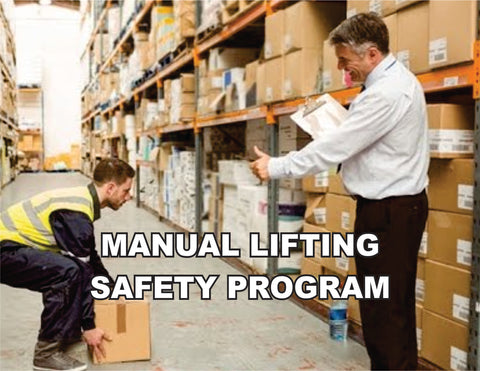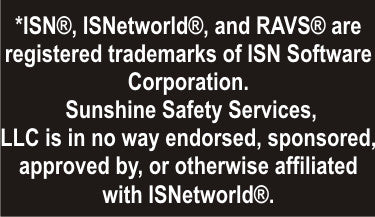Manual Lifting Program - ISNetworld RAVS Section - US
$ 19.95
Manual Lifting Program - ISNetworld RAVS Section - US
This Manual Lifting Program (ISNetworld® RAVS®* Section), in addition to being a complete and functioning written safety program (chapter), it also contains all the required text elements that are sought by the ISNetworld RAVS® (Review And Verification Service) reviewer. This plan has been previously submitted and has achieved a 100% approval rating for our clients.
- All programs are guaranteed now and in the future to achieve 100% approval.
- There are NO maintenance or subscription fees.
- Simply notify us if any program falls out of compliance and we will correct it at NO CHARGE.
You are downloading a Microsoft® Word document file to your computer that is completely editable:
- Manual Lifting Program:
- Approximate Word Count: 1,220
- Approximate Number of Pages: 5
- Page Reference Answers to RAVS Reviewer’s Questions: 7
You will also receive instructions for a simple two-step process to place your company name and safety person's name throughout this word document to conform it to your company. Please review, and feel free to alter or add to it as you wish with any specific company information or safety policies that you may already have.
The first two pages of the document are guidelines for conforming this safety manual section, an index for completing the RAVS® questionnaire (with all page references), and uploading the section.
If you experience any difficulty filling out the questionnaire, or have any questions in general about these documents, call 314-570-0072, or e-mail me at vsunshine1@gmail.com.
An excerpt from ISNetworld® RAVS®* Safety plan Manual Lifting Program
Introduction
Replace with Company Name requires that safety planning and practices for commonplace tasks are as thorough as for operations with unusual hazards. Commonplace tasks make up the greater part of the daily activities of most employees and, not unexpectedly, offer more potential sources of accidents with injuries and property damage. Every operation or work assignment begins and ends with handling of materials. Whether the material is a sheet of paper (paper cuts are painful) or a cylinder of toxic gas, accident risks can be reduced with thorough planning. Identifying obvious and hidden hazards should be the first step in planning work methods and job practices. Thorough planning should include all the steps associated with good management from job conception through performance and completion of the task.
Most of the material presented in this section is related to the commonplace and obvious. Nevertheless, a majority of the incidents leading to injury, occupational illness, and property damage stem from failure to observe the principles associated with safe materials handling and storage.
A less obvious hazard is potential failure of used or excessive motorized handling or lifting equipment. The Responsible Safety Officer, Replace with Safety Person’s Name, (RSO) or designated representative must be notified whenever it is desired to acquire a crane, forklift truck, or other motorized handling or lifting equipment.
Lifting and Moving
Lifting and moving of objects must be done by mechanical devices rather than by manual effort whenever this is practical. The equipment used must be appropriate for the lifting or moving task. Lifting and moving devices must be operated only by personnel trained and authorized to operate them. Employees must not be required to lift heavy or bulky objects that overtax their physical condition or capability.





